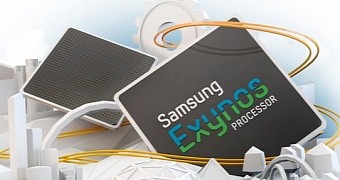“Internet of Things” is a tech marketing term that describes the environment of tomorrow, when everything in your house, from the recycle bin to the smart TV, will be connected to the technological equivalent of a hive mind, which would be under your control.
Samsung, as one of the biggest names in the technology industry and having its fingers in many different pies, naturally has a stake in bringing this dream about.
However, like all other corporations supporting this society model, it has done little besides talk about the Internet of Things so far.
Now, though, with 2015 finally underway, and with Intel tossing the gauntlet back in September 2014 by releasing the Core-M CPU and outlining its IoT dreams, Samsung has made its first big move in this area.
Samsung intends to make the Internet of Things open
In a way, Intel doesn't have to worry much about its spot in the Internet of Things, since as long as it continues to make CPUs, especially low-power ones, its spot is assured.
The same could be said about Samsung, at least in regards to smartphones, tablets, Smart TVs, and whatever other devices will come to use its ARM-based processors.
However, both companies want to do more for (and, by extension, get more out of) the new technology model.
Samsung's plan is to advocate for an open IoT, where all platforms have a degree of intercompatibility high enough for any device and software developer to chip in one way or another.
Chief executive BK Yoon believes that there need to be interoperable standards for all possible connected devices, from bins to street lights and self-tinting windows, in order for true IoT to become reality.
A digital door lock won't be able to talk to the alarm system or send a message through your microwave oven's speaker when there's someone at the door, not unless the software is compatible between them. Especially if the point is to make sure all the exchanges happen quickly and efficiently.
Security is also important, especially for emerging devices, as it needs to be ensured both at hardware and software level.
Samsung invests 100 million in open IoT
Having bought IoT company Smart Things back in August 2014, Samsung already has all it needs to make sure all its future devices can interlink with each other. It is currently fueling $100 / €70 million into this plan.
What the company challenges everyone else on the market to do is pool their resources to develop a universal OS or standard on which OS'es could be developed by the time IoT is supposed to start proliferating (2020).
Hopefully Microsoft, Apple and Google respond swiftly to this, since they essentially rule the software part of things.

 14 DAY TRIAL //
14 DAY TRIAL // 